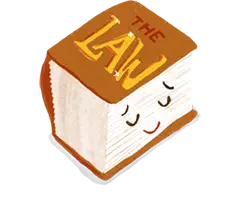Topic
Workplace safety
This page contains different parts of laws about Workplace safety, within the topic of Work and jobs.

Important laws about Workplace safety
Oranga Tamariki Act 1989
Telling the boss what happened after a medical check
57: Report to chief executive following medical examination
Oranga Tamariki Act 1989
Help for young people hurt while doing community work: accident compensation applies
302: Application of Accident Compensation Act 2001 to young persons performing work under community work order
Oranga Tamariki Act 1989
Keeping a Record of Inspections and Searches
384I: Recording of inspections and searches
Crown Organisations (Criminal Liability) Act 2002
Making Sure Government Organisations Follow the Rules
Crown Organisations (Criminal Liability) Act 2002
This law helps make government organisations follow rules and face consequences if they break them.
3: Purpose
Crown Organisations (Criminal Liability) Act 2002
What words mean in this law
23: Interpretation
Crown Organisations (Criminal Liability) Act 2002
Only inspectors can start a prosecution
25: Only inspectors to institute prosecutions
Income Tax Act 2007
Employer-provided health and safety benefits that aren't taxed
CX 24: Benefits related to health or safety
Income Tax Act 2007
Rules for certain insurance payments made before July 2000
CZ 15: Accident insurance contracts before 1 July 2000
Income Tax Act 2007
No tax on workplace health and safety payments
CW 17D: Payments related to health or safety
Smokefree Environments and Regulated Products Act 1990
No smoking or vaping allowed at work
5: Smoking and vaping in workplaces prohibited
Smokefree Environments and Regulated Products Act 1990
Employers can allow smoking or vaping in work vehicles if all users agree in writing.
5A: Employer may permit smoking or vaping in vehicle with consent of users
More laws about Workplace safety
About this project
What is this project?
This project is an experiment to take difficult language, and make it easier to read and understand for everyone.
How do we do this?
What's our process for taking the law and turning it into plain language?
Why is the law written like it is?
Laws are often hard to read. They use a lot of words and language we don't usually use when we talk.
Should we use AI for this?
What are the good and bad sides of using AI?
Is this information the actual law?
We hope that this information will help people understand New Zealand laws. But we think that it's important you talk to someone who understands the law well if you have questions or are worried about something.
You can talk to Community Law or Citizen's Advice Bureau about your rights.
Remember that AI can make mistakes, and just reading the law isn't enough to understand how it could be used in court.
You can talk to Community Law or Citizen's Advice Bureau about your rights.
Remember that AI can make mistakes, and just reading the law isn't enough to understand how it could be used in court.




